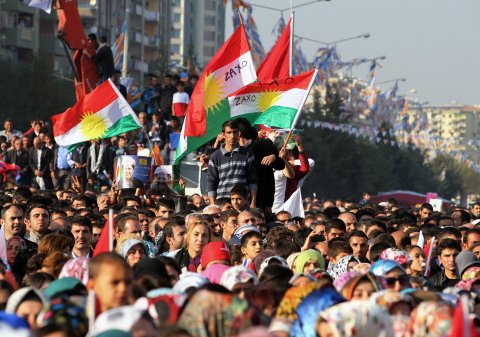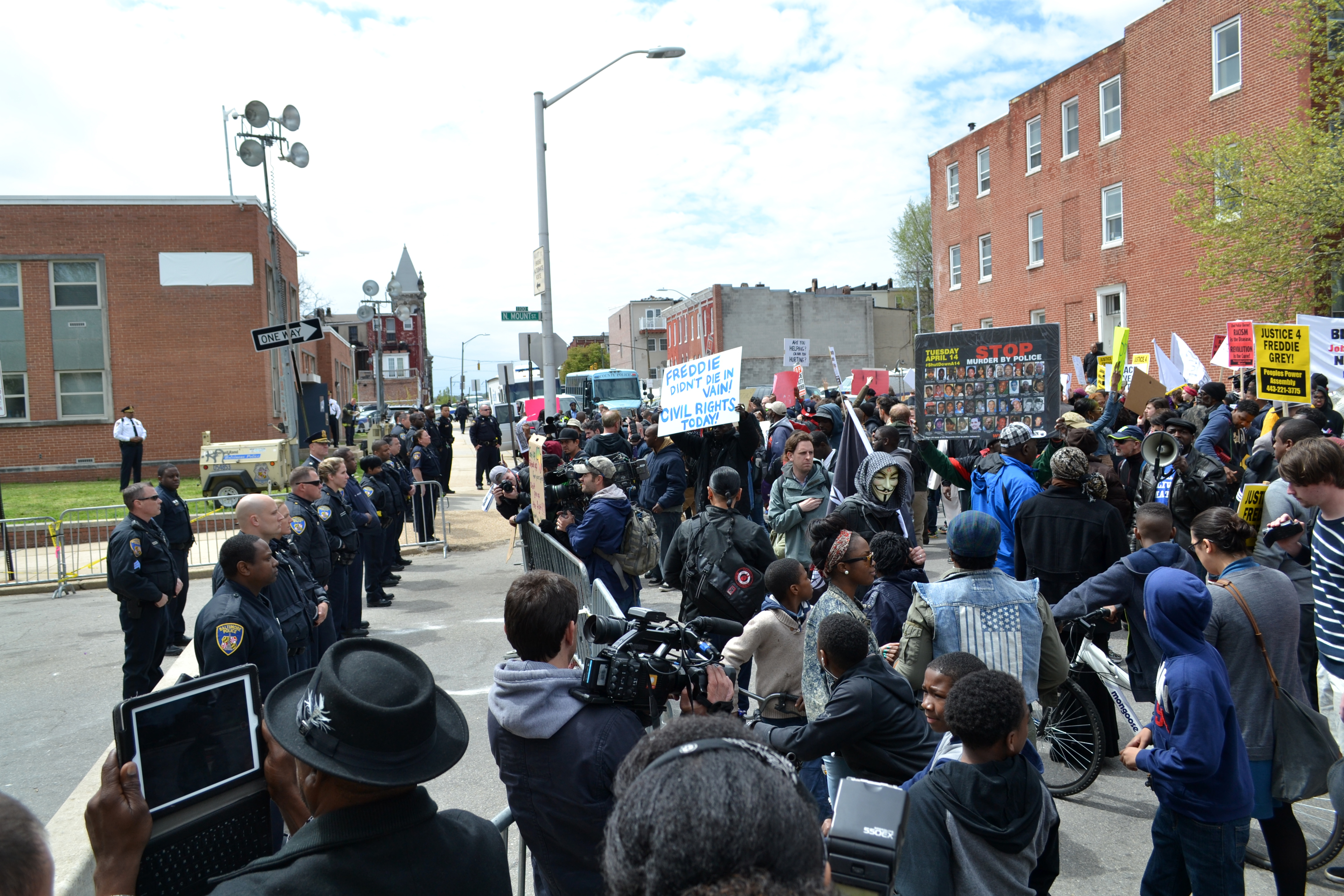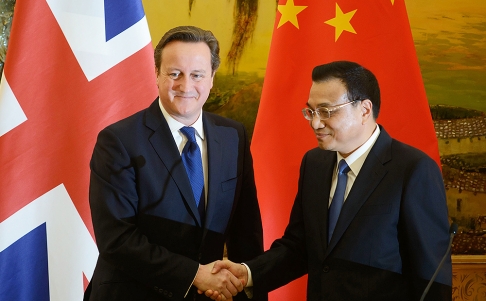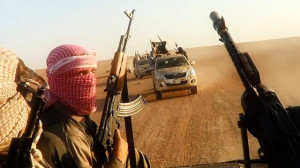
In one of the first positive developments to come out of Iraq in months, the national legislature elected Fuad Masum, a veteran Kurdish politician, as President of Iraq. The ceremonial position, imbued with moral authority, conventionally goes to the Kurds, who also have near-complete autonomy in the country’s north. Meanwhile, in both Syrian and Iraqi Kurdistan, militias have resisted and even beaten back offensives by the Islamic State of Iraq and Syria (ISIS), defending islands of relative stability, prosperity and tolerance in a roiling sea of warfare and seizing areas claimed by a potential future Kurdish state. In Turkey, Kurdish relations with the central government remain rocky, although Kurdish-dominated regions in the country’s east are increasingly prosperous and peaceful after decades of insurgency.
Yet, only twenty years ago, Kurds faced a constant threat of persecution and genocide at the hands of the Iraqi regime, while being second-class citizens in Syria and in the early stages of a negotiated peace between the Turkish government and the Marxist rebels of the Kurdish Workers’ Party (PKK). This forward momentum, sustained by Kurdish political maneuvering and the disintegration of Iraq and Syria, appears to be finally headed towards independence for at least some of the Middle East’s 30 million Kurds, the world’s largest stateless group.
The collapse of the Ottoman Empire in the wake of the First World War led to the first national awakening of the Kurdish people. Kurdish nationalism had begun to appear alongside Turkish and Arab nationalisms during the late 19th and early 20th century, with a focus on their common language and history. The emergent Turkish state initially managed to co-opt Kurdish clan leaders, but sporadic rebellion against the new government in Ankara began, with the formation of the ill-fated Republic of Ararat in 1927 and its collapse in 1930. Meanwhile, Kurds were both favoured and repressed by European colonial administrations in Iraq and Syria, as they had special autonomy while at the same time faced periodic persecution in the Arab protectorates. Iranian Kurds, beneficiaries of the creation of a constitutional monarchy and favoured for their cultural similarity with Persians, were also relatively well-off, although Soviet-backed Kurdish rebels briefly established the Republic of Mahabad from 1946 to 1947.
With decolonization in the Middle East and the beginning of the Cold War, the Kurds faced new challenges. By 1960, radical Arab nationalist regimes rose to power in Iraq and Syria. Meanwhile, Turkey and Iran’s short-lived experiments with democracy ended, with authoritarian governments rising in their place. Veterans of previous rebellions, such as Mustafa Barzani, commander of Mahabad’s army and leader of Iraq’s Kurdish Democratic Party (KDP), began to call for independence.
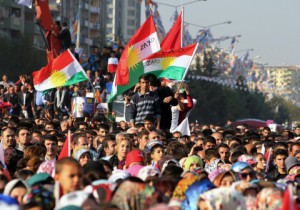
Guerrilla war against the Iraqi government began in 1960 with a KDP-led rebellion. Iraqi Kurdistan soon fell into a cycle of insurrection, repression, peace negotiations promising autonomy to the Kurds, the government backtracking on that promise, and the beginning of another revolt. Under Saddam Hussein and the Ba’ath Party, the Iraqi government intensified its persecution of Kurds, implementing a forced ‘Arabization’ program in Kurdish areas and massacring tens of thousands of Kurdish civilians in an effort to quash the insurgency. Most infamously, Saddam used nerve gas on civilians in the town of Halabja, killing over 5000 people. Kurdish rights were only secured with the 2003 U.S. invasion of Iraq and the subsequent creation of an autonomous Kurdish region and empowerment of the Kurdish militia, the Peshmerga.
Turkey, though, saw the greatest incidence of civil conflict. During the early years of the Turkish republic, Kurds attempted to gain linguistic, cultural and political rights through participation in electoral politics. This avenue of peaceful participation in the system was closed by a series of military governments, with repression increasing throughout the 1960s and 70s. The Turkish nationalists who dominated the regime considered the Kurds to be “Mountain Turks”, implementing forced assimilation policies, banning the use of the Kurdish language, and arresting moderate Kurdish politicians. This set the stage for the emergence of the Kurdistan Workers’ Party (PKK), a radical leftist organization founded by Abdullah Öcalan.
The PKK, founded in 1977, initiated a campaign of rural insurgency and urban terrorism in 1984 with an attack on police and military units in the country’s east. The war, which saw a vicious, brutal cycle of government repression and violent resistance, ended in 1999 with a unilateral PKK ceasefire following the capture of Öcalan in Kenya. Since then, the Islamist government of Recep Tayyip Erdoğan has intermittently worked to include the Kurds and has appealed to nationalists, sparking a renewal of conflict in 2004. Last year, a final ceasefire with the PKK saw its forces withdraw to Iraqi Kurdistan and disarm in exchange for amnesty and promises of increased autonomy.
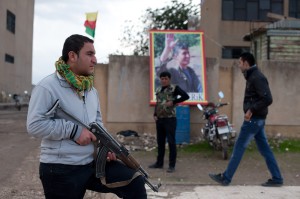
In Syria, the Ba’athist regime under Hafez al-Assad stripped Kurds of their citizenship and forcibly relocated them away from valuable agricultural land in the Jarizah region. Still, repression on the scale of Iraq never occurred, and the Assad regime allowed PKK fighters to use Syria as a safe haven from Turkish harassment. With the beginning of the Syrian civil war, so-called Peoples’ Defence Units (YPG) seized control over Kurdish-majority territory. The YPGs, dominated by the Democratic Union Party (PYD), itself an offshoot of the PKK, battled both government and rebel forces to establish an autonomous region. While internal tension between the PYD and Iraqi Kurdistan-aligned opposition groups erupted into fighting, the Kurds established an area relatively free of the sectarian bloodshed and brutality characterizing the rest of the Syrian war.
Today, the battleground for Kurdish independence is in Syria and Iraq, where their soldiers battle both the Assad regime and ISIS for control. Kurdistan’s political organizations, while authoritarian and based on patronage, tend to represent the only secular and pluralist force in the field. While internal divisions exist over clan politics, ideology, and regional identity, Kurdish groups face neither the deep fissures experienced by the Iraqi government nor the international condemnation of ISIS and the Syrian regime. Kurdistan may not be a state today, or even tomorrow, but if trends continue, the Kurdish flag may fly from the Zagros to the Taurus Mountains in the not-so-far future.

